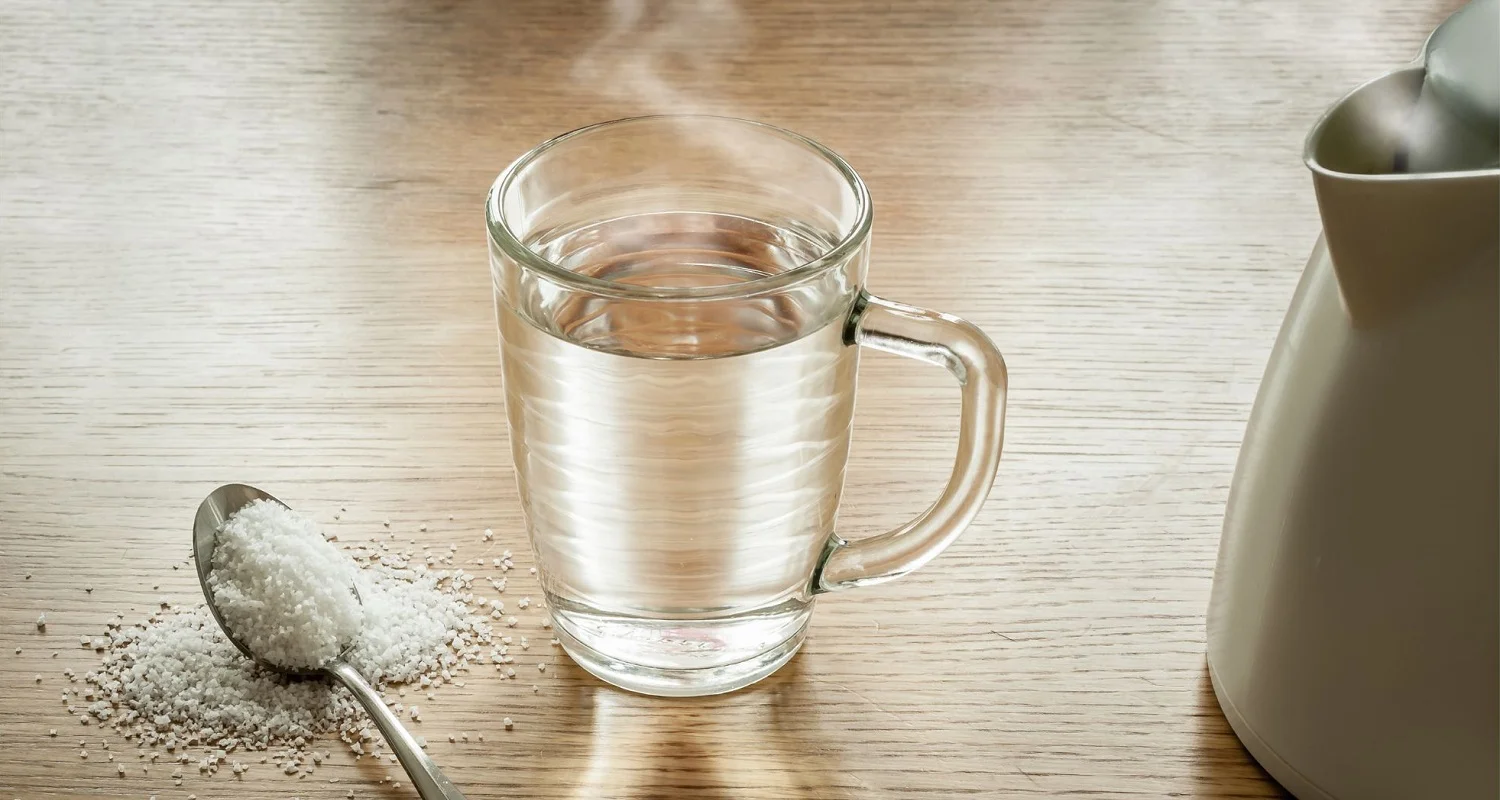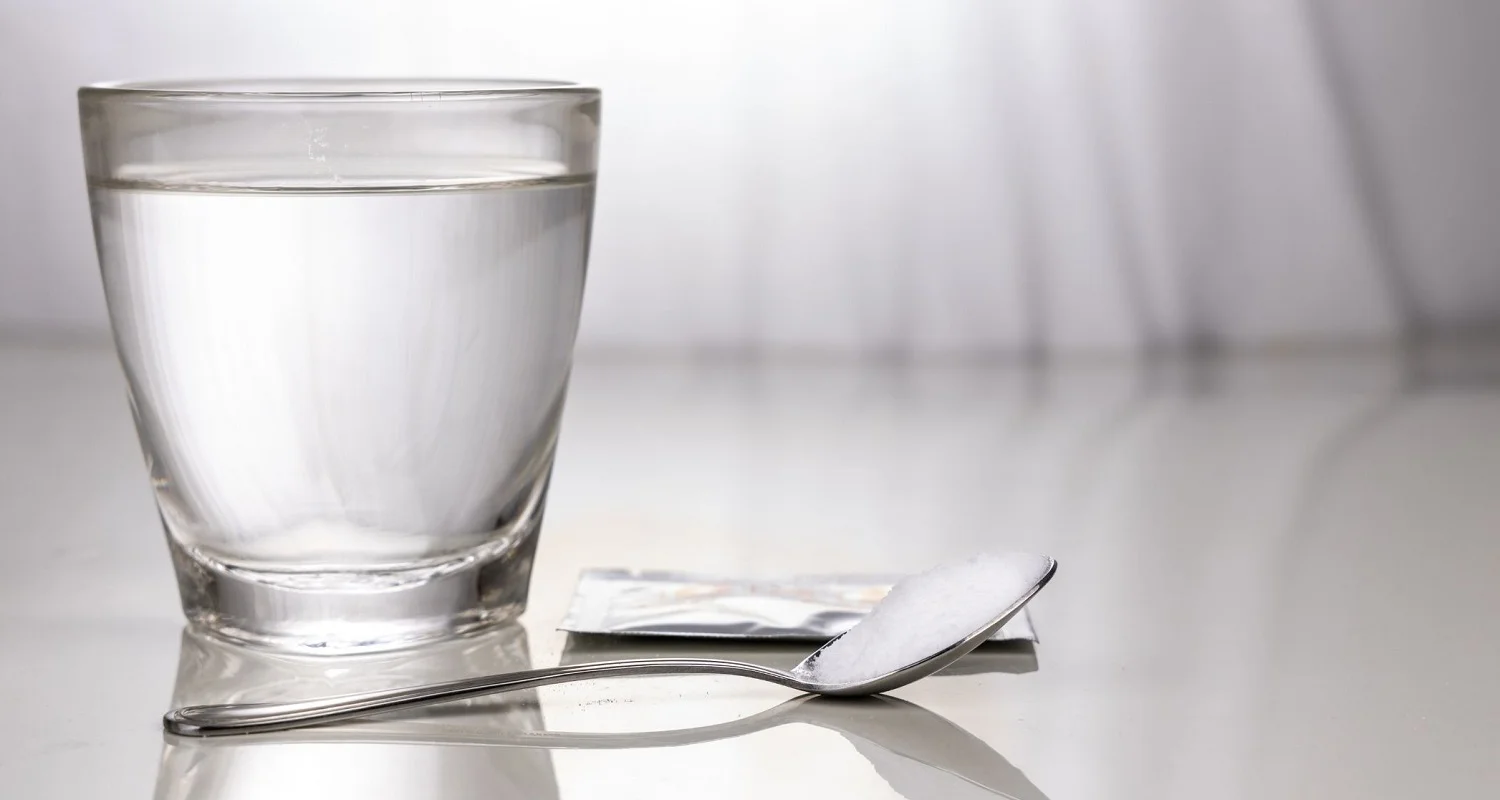Last Updated on: 11th December 2025, 10:26 am
Have you ever had an unbearable toothache that kept you awake? Dental pain is a common condition that can be extremely uncomfortable and even debilitating. When it comes to relieving this pain, many patients look for natural remedies at home before going to a dentist.
One of the oldest approaches to toothache relief is the salt water rinse for toothache. In this article, we will explore how and in which cases salt water can provide relief, as well as its many benefits. We will also discuss when it is appropriate to use this home remedy and when it is essential to seek professional dental care.
Can Salt Water Relieve Toothache?
In the search for natural remedies for toothache management, salt water has been a home remedy used for generations to treat a variety of oral problems. The reality is that salt water has powerful anti-inflammatory and antimicrobial properties and can be useful in cases of infection and dental abscess, but it is not a solution for dental pain that comes from the nerve. It is also not possible to permanently “kill the nerve” to solve dental pain using salt water rinses.

Although salt water rinses are not a definitive solution to relieve toothache, they can be of great help in wound repair processes after oral surgeries, while providing relief from some infectious processes. If you want to read about hydrogen peroxide on toothache, you can visit the article here.
The following are some of the benefits of saltwater rinses:
1. Anti-inflammatory and antiseptic properties
Saltwater is known for its anti-inflammatory and antiseptic properties. When you rinse your mouth with a saltwater solution, the salt ions help reduce inflammation and fight harmful bacteria that may be contributing to pain and discomfort.
2. Cleaning and disinfection effects
Rinsing with salt water can clean and disinfect oral wounds, ulcers, or sores, thus speeding up the healing process and reducing the associated discomfort. The salt in the solution helps remove dead cells and debris, promoting faster healing.
3. Oral pH balance
A pH-balanced oral environment is less prone to the proliferation of harmful bacteria. Rinsing with salt water can help maintain this balance, which in turn can prevent future infections and discomfort.
Tips for Preparing and Using a Salt Water Rinse for Toothache and Dental Discomfort
Follow these tips for preparing and using saltwater rinses:
1. Ingredients and proportions
Use a cup of warm water (8 oz), preferably sterilized or boiled. Add a teaspoon of common table salt. It is not necessary to use sea salt or any other special type. Some patients report greater relief when using warm water, close to body temperature (37°C).
2. Mix well
Make sure the salt is completely dissolved in the water. Stir the solution to ensure an even distribution.
3. Rinse gently
Take a sip of the solution and rinse the affected area for approximately 30 seconds. Then, spit out the solution. Repeat this process several times, but avoid swallowing the mixture, as it may be too salty.
4. Don’t exaggerate
Do not rinse with excessive salt water, as this can cause dry mouth and additional irritation. Use it twice a day to get the necessary relief.
5. Avoid vigorous rinses
Do not rinse vigorously, as this could make the situation worse and cause more pain. If you are recovering from a tooth extraction, avoid rinsing during the first 3 days after the procedure, as this could dislodge the clot and cause bleeding.

When to Seek Professional Dental Care?
While saltwater rinsing can provide temporary mild relief from inflammation secondary to dental infections and aid in short-term pain management, remember that it is not a permanent solution. Here are situations in which you should seek professional dental care:
1. Persistent or acute pain
If your toothache does not subside after 24 hours and/or if it becomes severe, it is important to schedule an appointment with your dentist immediately.
2. Obvious infection
If you notice clear signs of infection, such as facial swelling, cold and flu, fever, drainage, or a bad taste in your mouth, see your dentist immediately as you may require antibiotics and other treatments.
3. Serious injuries or trauma
In the event of serious oral injuries or dental trauma, such as a fractured or dislodged tooth, you should seek professional dental care immediately to prevent further damage.
4. Persistent tooth sensitivity
If you experience constant tooth sensitivity even after using saltwater rinses, this could be a sign of an underlying dental problem that requires evaluation by a professional.

Conclusion
• Saltwater rinsing is a natural remedy that has been shown to be effective in promoting healing after dental surgeries and relieving symptoms secondary to dental infections.
• When faced with dental conditions caused by problems originating in the dental pulp or nerve, the only solution is to see a dentist to determine the appropriate treatment.
• Although saltwater rinses can be helpful in relieving the symptoms of a dental infection, treating these situations always requires professional management.
• If the pain persists or worsens, or if you experience other serious dental problems, do not hesitate to consult your trusted dentist.
• At-home dental care, such as doing saltwater rinses, can be helpful but should always be complemented by proper oral hygiene practices and regular visits to the dentist to maintain a healthy, pain-free smile.
Frequently Ask Questions
How effective is using a saltwater mouthwash to relieve toothache?
From a scientific perspective, a warm salt water rinse can relieve dental discomfort by adjusting the oral pH, creating a more alkaline environment where the bacteria responsible for pain have a difficult time surviving. These harmful bacteria tend to flourish in acidic conditions.
How many times should I gargle salt water for toothache?
A salt water rinse can help relieve toothache because salt is a good toothache remedy. Rinsing with warm salt water two or three times a day can help relieve toothache because salt water acts as an antiseptic. It removes bacteria from the infected area.
How long should you keep saltwater rinse in your mouth to treat a toothache?
Hold the saltwater rinse in your mouth for approximately 30 seconds before expelling it. Do this process several times throughout the day to reduce discomfort. The water and salt solution works by eliminating irritating particles inside the mouth and reducing inflammation.
Why do my teeth feel sore after rinsing with salt water?
If the saltwater rinse comes into direct contact with exposed dental nerves, you may feel sharp pain. This is because these nerves are usually protected by layers of dentin and enamel and are not accustomed to direct stimulation. So, if the saline rinse directly touches an exposed nerve in the tooth, the sensation of pain can be intense.
Share:
References
1.Collins, J. R., Veras, K., Hernández, M., Hou, W., Hong, H., & Romanos, G. E. (2021). Anti-inflammatory effect of salt water and chlorhexidine 0.12% mouth rinse after periodontal surgery: a randomized prospective clinical study. Clinical Oral Investigations, 25(7), 4349–4357. https://doi.org/10.1007/s00784-020-03748-w
2. Cronkleton, E. (Aug 11, 2021). Home and Natural Remedies for Toothaches. https://www.healthline.com/health/dental-and-oral-health/home-remedies-for-toothache
3. Steven Lin, D. D. S. (Nov 21, 2016). Canker sore or dental surgery? How to make salt water mouth rinse. Verywell Health. https://www.verywellhealth.com/how-to-make-saline-solution-salt-water-mouth-rinse-4109216
4. Toothache. (Apr 11, 2023). Cleveland Clinic. https://my.clevelandclinic.org/health/diseases/10957-toothache
5. Toothache home remedies. (Apr 4, 2023). WebMD. https://www.webmd.com/oral-health/home-remedies-toothache
6. Osunde, O. D., Adebola, R. A., Adeoye, J. B., & Bassey, G. O. (2014). Comparative study of the effect of warm saline mouth rinses on complications after dental extractions. International Journal of Oral and Maxillofacial Surgery, 43(5), 649–653. https://doi.org/10.1016/j.ijom.2013.09.016
-
Nayibe Cubillos M. [Author]
Pharmaceutical Chemestry |Pharmaceutical Process Management | Pharmaceutical Care | Pharmaceutical Services Audit | Pharmaceutical Services Process Consulting | Content Project Manager | SEO Knowledge | Content Writer | Leadership | Scrum Master
View all posts
A healthcare writer with a solid background in pharmaceutical chemistry and a thorough understanding of Colombian regulatory processes and comprehensive sector management, she has significant experience coordinating and leading multidisciplina...















